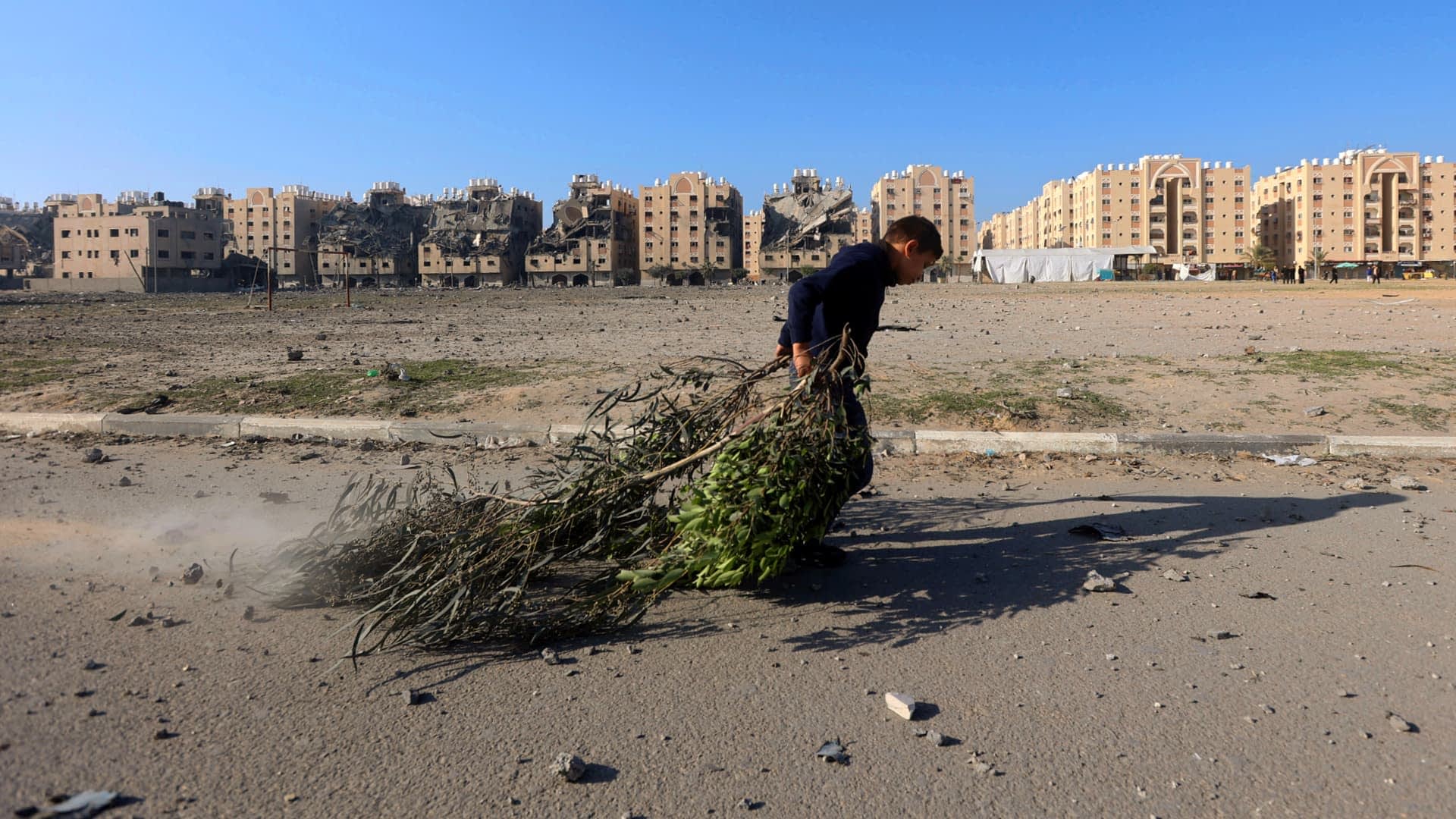Olive Trees in Gaza Among Conflict's Collateral Losses

The ongoing Israeli invasion in Gaza has led to families cutting down olive trees for firewood, causing devastation and respiratory illnesses in the area, as well as impacting the olive oil production in Palestine, which was expected to be significantly lower due to the conflict. The conflict has forced many Palestinians to rely on firewood for cooking and heating, leading to the destruction of olive trees that are a major agricultural crop in the region and a source of livelihood for many families. This has resulted in a significant impact on the health and well-being of the people in Gaza, with respiratory illnesses on the rise due to the smoke released from burning wood and solid waste.
Olive trees in Gaza are caught in the spiral of the ongoing Israeli invasion, with people in the Palestinian enclave sourcing firewood from their family groves for cooking and heating.
“To make bread, you need a fire,” Khaled Baraka, a Palestinian from Bani Suhaila, a city of 41,000 people in Gaza, who had to flee the city with his family, told Al Jazeera. “How else was it supposed to happen?”
Before leaving, Baraka cut down half of the trees in the family orchard, including olive, lemon and orange trees, to provide firewood for his family and neighbors in need.
See Also:Destruction of Olive Trees in West Bank Is an Attack on Palestinian Sovereignty, Activists Say“I was displaced… when Israeli tanks entered the city of Khan Younis, we were already having a hard time,” Baraka said. “My orchard and fields were next to our house, and we had already started burning branches.”
“These trees lived through my moments of joy and sadness,” he added. “They know my secrets. When I was sad and worried, I would talk to the trees, take care of them… but the war killed those trees.”
Ahlam Saqr, a 50-year-old woman living in Gaza City, was devastated when her sons had to chop down the four olive trees in their backyard to source the wood needed to cook and heat their home.
“The house felt so empty,” Saqr told Al Jazeera. “The trees had their place in the house, and it became dark when they were gone. We have beautiful memories with them. I used to tell everyone that my trees have been my life companions.”
The Israeli invasion of Gaza came in response to the October 7th attack when militants from Hamas, Palestinian Islamic Jihad and other groups killed 1,143 Israelis. Health officials in Gaza estimate at least 30,000 Palestinians have been killed since Israel’s incursion.
The start of the war coincided with the beginning of the harvest, and as a result, some locals did not gather their fruit in the struggle to secure their day-to-day living.
“Instead of [harvesting] olives, we are cutting any tree we can find to survive,” Shahd al-Modallal, a resident of Rafah in southern Gaza, told The Guardian. “We’ll build a fire and announce to everyone in the family that we have a fire, so anyone who has food they want to cook should bring it. That’s our daily routine.”
Olives are a major agricultural crop in Palestine and have been cultivated for thousands of years on the eastern shores of the Mediterranean.
Nearly half of the cultivated land in the West Bank and Gaza — an area of almost 41,900 hectares — is planted with more than 10 million olive trees, mostly local, drought-resistant cultivars such as the Souri and Nabali. Around 100,000 families in Palestine are estimated to rely on olive trees for their livelihoods.
In 2017, Palestine became the 14th member of the International Olive Council (IOC). According to the council, Palestine, including the West Bank and Gaza, produced 23,000 tons of olive oil in the 2022/23 crop year. Ahead of the Israeli invasion, the IOC estimated that Palestine would produce 12,000 tons of olive oil, which will almost certainly not be obtained due to the conflict.
Meanwhile, burning large quantities of wood and solid waste has led to respiratory illnesses being on the rise in Gaza due to the smoke released. The World Health Organization reported 129,000 respiratory infections in the area in a single week last December.
According to the World Food Program, a United Nations organization that provides food and other assistance to people in dire need, 70 percent of the displaced people in southern Gaza depend on firewood for fuel.
“We are living with sickness,” Ali Daly, a man ousted from Rafah who settled in Gaza City, told The Guardian. “From the smoke of cooking, the smoke of the airstrikes, from the cold.”

